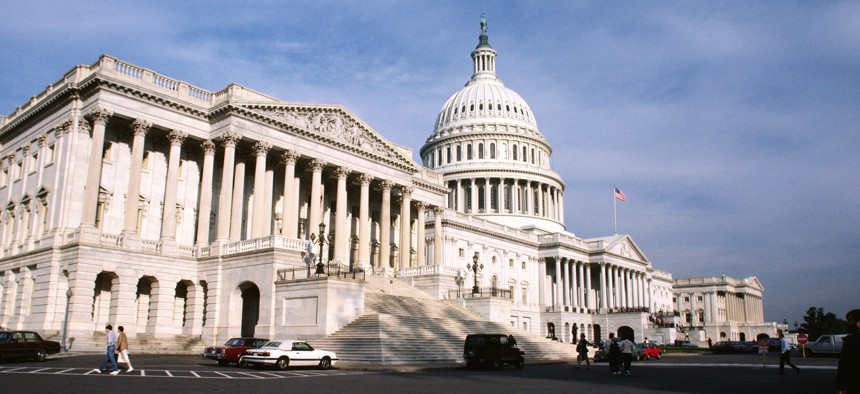Senate Bill Looks to Train AI-Ready Workforce, Focus on Risk Mitigation

Glowimages/Getty Images
The bipartisan legislation, introduced last week, aims to help public sector employees catch up with advancing AI technologies.
New legislation is responding to the federal workforce’s knowledge gap concerning advancing artificial intelligence systems, with a team of bipartisan senators aiming to create a new training program specifically for leaders at government agencies.
Introduced by Sens. Gary Peters, D-Mich., and Mike Braun, R-Ind., the Artificial Intelligence Leadership Training Act, first announced on May 11, establishes a subagency within the Office of Personnel Management that focuses on training covered and eligible employees in artificial intelligence systems that may be incorporated into federal operations.
The ultimate goal of the bill is to improve the federal workforce’s skills and acumen regarding AI applications, a technology that stands to continue to rapidly evolve and seep into daily functions.
“As the federal government continues to invest in and use artificial intelligence tools, decision-makers in the federal government must have the appropriate training to ensure this technology is used responsibly and ethically,” said Peters in a press release. “With AI training, federal agency leaders will have the expertise needed to ensure this technology benefits the American people and to mitigate potential harms, such as bias or discrimination.”
Some of the mandated subjects for the education program stipulated in the bill include defining AI, basic functionality, risk and benefit analyses, how data informs AI algorithms, risk mitigation techniques and a broader infrastructure to govern AI system deployment. It would also require updates to the curriculum from the OPM director.
“In the past couple of years, we have seen unprecedented development and adoption of AI across industries. We must ensure that government leaders are trained to keep up with the advancements in AI and recognize the benefits and risks of this tool,” Braun said.
Identifying risks inherent to AI systems is a key part of the proposed curriculum for the program created by the bill.
The focus on potential hazards in AI systems handling critical data comes amid sophisticated generative AI softwares capable of further spreading misinformation and mishandling data—two problems federal agencies are looking to prevent.
“The training aims to help federal leaders understand the capabilities, risks and ethical implications associated with AI, so they can better determine whether an AI capability is appropriate to meet their mission requirements,” Peters’ press release says.
The Artificial Intelligence Leadership Training Act takes cues from government officials who have long advocated for a more tech-savvy workforce, and compliments the AI Training Act, another bill introduced by Peters that became law in October 2022.
Several other similar pieces of legislation have circulated on Capitol Hill in recent years that intend to address existing knowledge gaps the federal workforce has concerning advanced, emerging technologies like AI.






